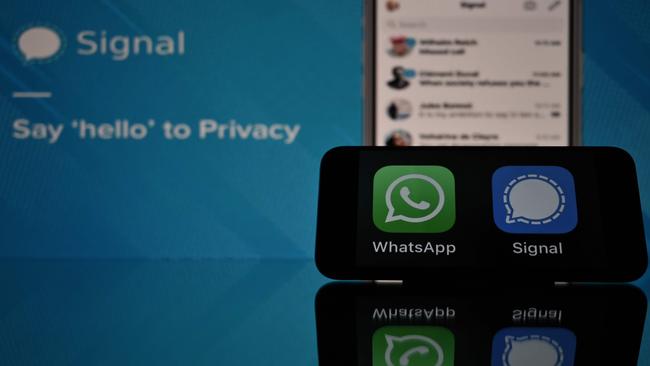Sick of big tech? Alternative social media services on the rise
Amid a growing backlash against the tech giants, alternative social media platforms are making waves and users are flocking to them.
Big tech giants like Facebook, Google and Twitter have been under attack from all sides and more and more users are starting to look for other ways to connect.
Privacy and personal data concerns have been a huge global issue since the Cambridge Analytica scandal rocked Facebook, and the major tech players are also under fire around the world for monopoly-like behaviour and stymying competition. Facebook’s move to change the terms and conditions for What’s App have only added fuel to the fire in recent days.
The big tech companies have also been criticised for doing too little to tackle objectionable and illegal content. Conservative users claim the services are heavily biased toward liberal concerns, with that criticism reaching fever pitch following the bans placed on US President Donald Trump following the Washington riots and Amazon pulling the plug on the Parler platform that was rapidly gaining traction with right-wing users.
Against that background, a number of alternative social media platforms are popping up, promising a focus on privacy and free speech, and users across the globe are flocking to them.
MeWe
MeWe was founded in May 2012 but has exploded in popularity in recent days, with an estimated million new members joining in the last 72 hours, particularly after Parler was banned from app stores. The app was previously not in Apple’s top charts, but is now ranked 5th out of all apps, and claims to have more than 14 million members. MeWe takes a light approach to content moderation, and is similar and look and feel to Facebook. It became popular in Hong Kong during its November 2020 protests.
“It’s almost like the perfect storm,” MeWe chief executive Mark Weinstein. ”The melting pot of people coming to MeWe are coming from all directions.”
Website: http://www.mewe.com
Use Signal
— Elon Musk (@elonmusk) January 7, 2021
Signal and Telegram
Facebook-owned messaging app WhatsApp is facing a user exodus, after it updated its terms of service to allow Facebook to collect user data, including phone numbers and location. As a result, privacy-focused direct messaging apps Signal and Telegram have soared in popularity, and are topping app store charts locally. Signal received a boost from Tesla CEO Elon Musk, who called on his followers to delete WhatsApp and install Signal instead. Messages across both Signal and Telegram are encrypted end-to-end, meaning they‘re safe from prying eyes.
Signal website: http://signal.org/en
Telegram website: http://telegram.org

Parlor
No, that’s not a typo. Parler was cut off by Amazon Web Services and kicked off the Apple and Google app stores after it reportedly served as the platform for organisers of the January 6 attempted Capitol riot. While Parler remains unavailable, Parlor, with an ‘o’ – has popped up to take its place. An app for talking to strangers online, Parlor is billing itself as “the first and only social talking network” – and perhaps the first to take advantage of typos for marketing. Parlor is currently in the top 10 of both Google and Apple’s app stores. It describes its audio platform as being “like picking up the phone and calling a good friend.”
Rumble
Another app to gain rapid popularity in the last few days, Rumble is a conservative-friendly alternative to YouTube. Its founders say Rumble doesn’t censor political or scientific content on its platform, unlike YouTube, for example which has proactively taken down videos it claims contains misinformation. The Toronto-based Rumble recently filed a lawsuit against Google, accusing it of promoting YouTube over rivals.
Website: http://www.rumble.com
Gab
Gab claims to champion of free speech, and says it added 600,000 new users on the weekend. The app, which is similar to Twitter to use, has long been popular among those with right-wing political leanings, and is now receiving millions of visitors a day. The site was dropped by its original web host GoDaddy in 2018, after it was revealed a mass shooter in Pittsburgh was a Gab user. Users post ‘gabs’, capped at 300 characters, and the website claims to be founded “in the common ideals of Western values, individual liberty, and the free exchange and flow of information”.
Website: http://www.gab.com



To join the conversation, please log in. Don't have an account? Register
Join the conversation, you are commenting as Logout